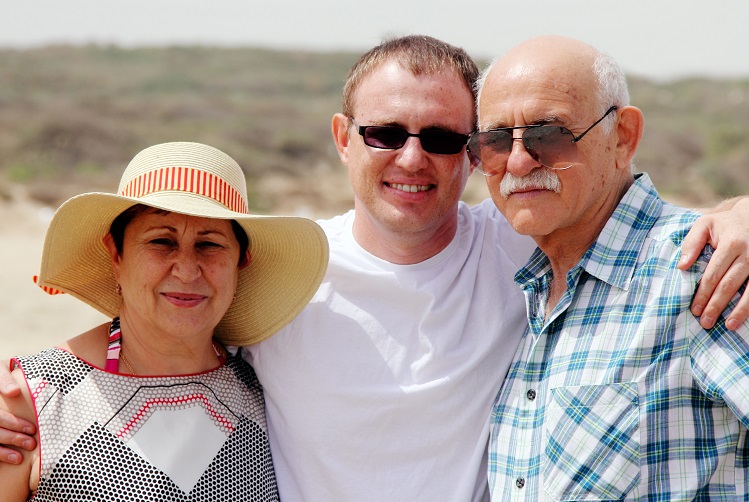
Contributed By: Katherine Miller, Director of Family Services at Canyon Crossing Recovery
There have been many studies and reports indicating the adverse effects of substance abuse and other forms of addiction on the individual addict and the addict’s family. Effects on the family are multi-faceted and fall within a wide range of areas including but not limited to:
- Emotional burdens
- Economic burdens
- Relationship distress
- Relationship dissatisfaction
- Family instability
- Negative effects on parents and loved ones
- Negative impact on developing children
When one considers the enormous toll addiction can take on a family, communication with these families can be, at best, very difficult when the addict becomes newly sober.
Array of Emotions
 More often than not, a newly sober person’s family experiences stimulate an array of emotions when one begins the journey of sobriety. Some of these feelings and emotions include:
More often than not, a newly sober person’s family experiences stimulate an array of emotions when one begins the journey of sobriety. Some of these feelings and emotions include:
- Fear
- Hope
- Joy
- Anger
- Uncertainty
- Relief
- Sadness
- Anxiety
Depending in large part on the family’s experiences with fall-out from addiction, each family has a unique situation with which to address.
For instance, a family that has been through the wringer both emotionally and financially with their loved one after many attempts at treatment will react completely differently than a family of one who is attempting sobriety for the very first time.
Family Dynamic
The critical point is that every family has a unique set of circumstance. To provide the most effective support, it is crucial to understand the family dynamic in addiction. This dynamic is incredibly powerful in supporting or undermining the goal of the addict living a sober life and the family effectively dealing long-standing issues.
 Many families struggle with a lack of honest communication among themselves regarding problems experienced by the family or family member.
Many families struggle with a lack of honest communication among themselves regarding problems experienced by the family or family member.
A common way that dysfunctional families deal with uncomfortable family issues is to simply “sweep them under the rug” and pretend the problem(s) do not exist.
This “elephant in the room” method for problem solving can actually be one of the significant underlying reasons for the addict’s struggle with substances in the first place.
Once a member of the family is in an off-site substance abuse treatment facility, the diversion of dealing with the craziness created by the addict family member becomes much less intense and pressing.
This relative calmness can provide the family an opportunity to step back and examine the negative behavior patterns that have become part of the family’s ‘normal living.’
Professional Guidance
Most of the time, however, the guidance of a professional is required to bring home the reality of the unhealthy family dynamic which has kept the family unhealthy. Discussion of these issues and their impact on the family is always emotional and very difficult. Explaining the deep rooted co-dependency or enabling of the addiction which keeps both the addict and the family sick can initially create confusion or anger.
Throughout this process of understanding comes a lot of learning and growth opportunities for the family. Explanation, education, and experience of substance abuse on the addict and the family is something I engage in with families.
A significant portion of the interaction involves discussing and understanding family dynamics and the usually, well-defined, roles family members take on within the family dynamic.
 Coaching families in establishing healthy boundaries and decisions with the family’s well-being at the core has absolutely provided gratification and great reward.
Coaching families in establishing healthy boundaries and decisions with the family’s well-being at the core has absolutely provided gratification and great reward.
My passion in these activities has provided for a great relationship with families through the building of a strong sense of trust and support.
In my experience, building a foundation in this manner makes the difficulty of effective communication worth the work and focus required for success.
It must be kept in mind that building trust takes time and effort. This will not happen overnight but trust is the cornerstone of any relationship and is, without question, worth the effort.
Family work and the communication required for success is difficult and puts increased stress on an already fragile system. However, a profound opportunity is provided for improving communication through discovering the hidden forces that distort and confuse our lives.
The family members of addicts can take advantage of the crisis of addiction to avail themselves of the dual opportunity to support their loved one in recovery while discovering something vital about themselves.
Community Discussion – Share your thoughts here!
How has addiction recovery impacted your family life? What struggles were evident during your addiction that have received healing now that you are in recovery?
References:
Daley, D. (2013). Family and social aspects of substance use disorders and treatment. Journal of Food and Drug Analysis, 21(4). Retrieved from: http://www.ncbi.nlm.nih.gov/pmc/articles/PMC4158844/
Gifford, S. (2013). Family involvement is important in substance abuse treatment. Retrieved from psychcentral.com
 About the author: Katherine Miller is the Director of Family Services at Canyon Crossing Recovery. Katherine is an alumni of Canyon Crossing and believes that her life has become much more abundant and fulfilling since being a part of Canyon Crossing and hopes to carry that on to the women of Canyon Crossing. Katherine has also completed 2 years of her Bachelor’s Degree at Stephen F Austin State University prior to arriving to Prescott.
About the author: Katherine Miller is the Director of Family Services at Canyon Crossing Recovery. Katherine is an alumni of Canyon Crossing and believes that her life has become much more abundant and fulfilling since being a part of Canyon Crossing and hopes to carry that on to the women of Canyon Crossing. Katherine has also completed 2 years of her Bachelor’s Degree at Stephen F Austin State University prior to arriving to Prescott.
Katherine is now in the process of finishing her Bachelors of Science degree in applied human behavior at Northern Arizona University. Katherine wishes to proceed in getting her Master’s degree in social work and proceed to attend medical school to obtain her MD with the ultimate goal of opening up her own practice.
The opinions and views of our guest contributors are shared to provide a broad perspective of addictions. These are not necessarily the views of Addiction Hope, but an effort to offer discussion of various issues by different concerned individuals.
We at Addiction Hope understand that addictions result from a combination of environmental and genetic factors. If you or a loved one are suffering from an addiction, please know that there is hope for you, and seek immediate professional help.
Last Updated & Reviewed By: Jacquelyn Ekern, MS, LPC on December 15, 2015
Published on AddictionHope.com
